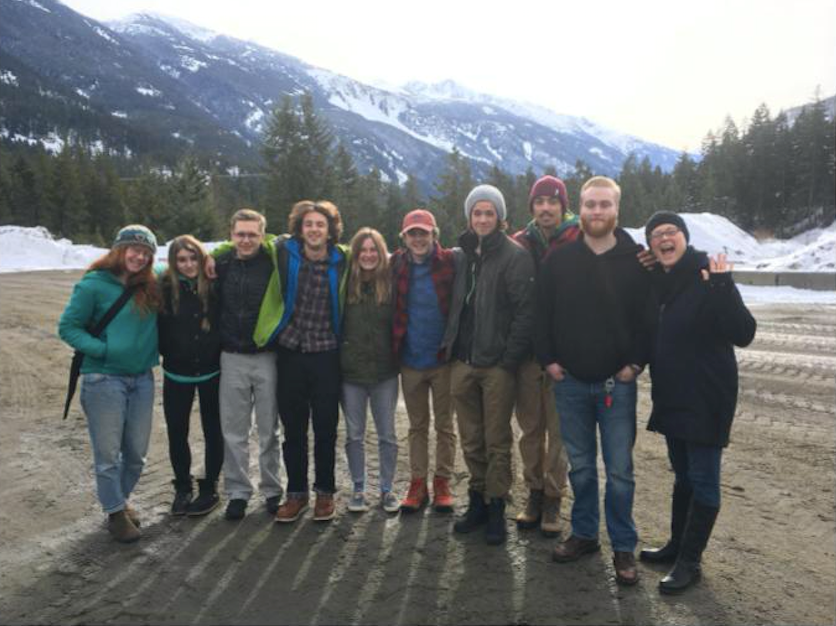"There once was a bag they called Tim," begins the story of a plastic bag's journey to a composting facility.
The short stop-motion video is produced and narrated by Quest University students in Ellen Flournoy's Rhetoric class and is meant to educate the community about what happens when plastics end up in the compost. In the video, Tim the bag's friendships with local fruit and vegetables are short-lived: they decay, while he is doomed to spend the next 100 years alone.
Students took a trip to Sea to Sky Soils, a facility that processes the majority of commercial and residential food waste in the Sea to Sky Corridor, and produced a series of assignments based on their findings to create an educational campaign.
Quest student Gracen Hecht said visiting the facility was an eye-opening experience for him.
"It was the gravity of the situation, the sheer extent of how much plastic there was," he said. "It's not this small problem, or that a few pieces of plastic are making it into the compost: people actually compost their plastic. Whether that be not knowingly, or they just don't care, it's hard to say. It's definitely a significant issue."
Spencer Shaw also said he was impacted by the visit, and making the video for the campaign was something he enjoyed.
"I guess I took it very seriously you could say," he said. "Just like the fact that it's making a difference and the fact that it's going to be seen by people; just trying to find a way to engage people, thinking creatively."
Krystle tenBrink is the director of Squamish CAN, a community environmental group, and the manager of community and campus sustainability programs at Quest. She has been working with Flournoy's classes the last few years on creating hands-on projects for students to create public awareness on community issues. Topics of past video projects include backyard hens, Squamish's residential compost pick up program, and the second phase of Mamquam's edible schoolyard.
When tenBrink learned of the situation at Sea to Sky Soils, she put the students in touch with the facility.
"If there that much plastic in the compost, there's clearly a disconnect between what [the public] thinks should be going in there and what actually should be going in there," she said.
Compost is brought to the facility by truck, sorted to have plastics removed, processed, and then sold to local farmers. But workers spend a considerable amount of time pulling plastic from compost, largely due to the confusion around the use of plastic bags that are labelled ‘biodegradable.'
Students hope the educational campaign, through the video, newsletter, and poster, will help Squamish residents understand that plastic bags, even those that are labelled as ‘biodegradable,' do not break down. Rather than lining bins with plastic, residents can use folded newspaper or paper bags.
As for Tim, he won't be leaving the compost anytime soon, as the students explain in the limerick:
"The reason he stayed is explainable:
He was labeled as ‘biodegradable.'
It's a marketing plot,
That term doesn't mean squat!
And let's just say that it isn't sustainable."



